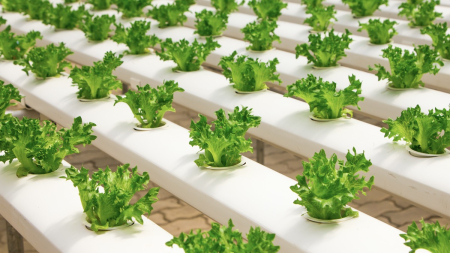NCFIL Director’s Perspective: Global Food Insecurity

Adverse weather events, pandemics, inflation, and geopolitical unrest (for example, the Ukrainian conflict and unrest in Niger) have reversed progress that was being made in achieving food security and a sustainable, equitable, and resilient food system.
Food insecurity is a global problem causing millions to go to bed hungry every day. This is not a problem happening only in underdeveloped countries; even affluent countries have issues because of low income, food deserts, and cultural differences.
Zero hunger is a goal developed as part of the United Nations Sustainable Development Goals agenda, but the events referenced above continue to pressure this goal as the global numbers of hungry and malnourished people grow.
What Can We Do About Food Insecurity?
What can society do to mitigate this rampant issue? Do food scientists, formulators, and entrepreneurs have a role? I’ll stay away from the volatile political issues surrounding this potential global tragedy, but there are numerous actions that various actors in our industry can execute. For example, food waste accounts for losses of a third of the food harvested or manufactured. The blame is not entirely on the food industry as consumers also dispose of large masses of food daily via mishandling, allowing it to expire, or not fully consuming prepared meals.
Here are some actions currently underway:
- Waste or byproducts produced during food manufacture are being closely examined for other uses in the circular economy;
- Food packaging is rapidly moving toward using bioplastics to reduce petroleum dependency;
- Food processing technologies like high pressure pasteurization, moist heat pasteurization, and alternative meat formulation are addressing food safety and more environmentally sustainable technologies; and
- Agricultural technologies, like gene editing, precision agriculture, drones, and artificial intelligence, are being used to produce safer food for the future.
Consumers Play a Role in Food Insecurity
The rapidly emerging use of technological innovation in agriculture and food alone will not ensure a sustainable, secure food system.
Consumers are important in this cast of actors as they must more consciously purchase food that is environmentally sustainable. This means multiple transformations need to occur in the food supply chain, food labeling, and consumer education.
There are only a limited number of foods marketed today that are certifiably sustainable, and unfortunately, most consumers base purchases on price, product appearance, nutrition, taste, and cultural habits rather than based on sustainability and/or food security.
Transformation is never easy in any culture, but future generations will benefit from actions taken today to ensure there is enough food to feed the growing global population.
- Categories: